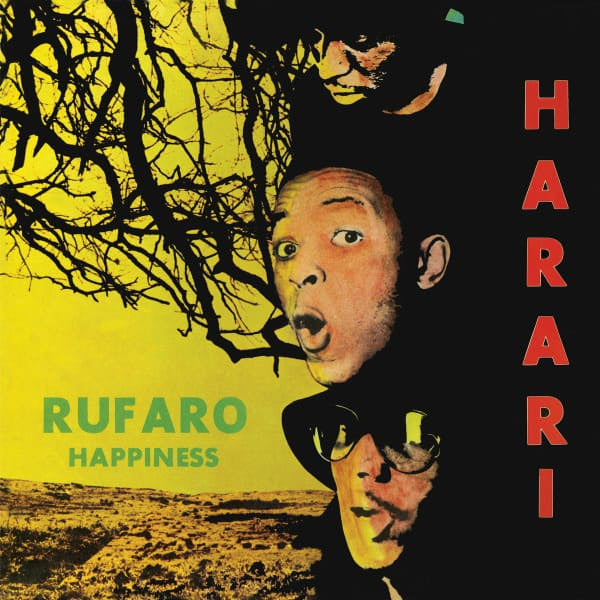Harari - Rufaro Happiness
Harari - Rufaro Happiness
Over the past few years, the fantastic SA based label Matsuli Music has been digging deep in the rich vaults of the country’s black music heritage, offering high quality reissues of cult and hard to find SA grooves from the past. After such highlights as Black Disco’s Night Express, Okay Temiz and Johnny Dyani’s Witchdoctor’s Son, Moses Taiwa Molelekwa’s Genes and Spirits, Bheki Mseleku’s Celebration or The Ibrahim Khalil Shihab Quintet’s Spring comes Harari’s first LP under this name, Rufaro Happiness, a bona fide Afro-psychedelic funk rock masterpiece from 1976.
Previously specialising in so called “Soweto soul” (a brand of SA soul music heavily influenced by its American counterpart), the story goes that after touring Rhodesia (now Zimbabwe) for three month in 1975, the band was inspired by the country’s struggle for independence, and by Afrocentric musicians such as Thomas Mapfumo.
“In Harari we rediscovered our African-ness, the infectious rhythms and music of the continent. We came back home inspired! We were overhauling ourselves into dashiki-clad musicians who were Black Power saluting and so on” says Sipho “Hotstix” Mabuse, one of the band’s co-founders and main composers.
Having recorded the seminal Harari in 1975, the quartet officially changed their name from The Beaters to Harari and set about recording a follow-up. Released in 1976, ‘Rufaro / Happiness’ explores further the themes of African identity, as well as the psychedelic Afro-rock template they had set up.
While the shorter and somewhat more classic sounding “Rufaro” and “Afrogas'' give a glimpse of the direction Harari was to take to in years to come (culminating with their huge disco classic from 1980, “Party”), look no further than the opener "Oya Kae” (“Where Are You Going?”) to find the most incredible slice of hypnotic Afro funk rock fusion. Clocking at eleven minutes, the music shares the same groovy psychedelic DNA with the likes of Osibisa circa Woyaya and Hugh Masekela’s golden output from the same period. On the B side, both “Musikana” and “Uzulu”evolve around a similar template. Deep, hypnotic and unavoidably funky, any of these songs would have sounded right at home on David Mancuso’s dance floor at the time they came out. Forty-five years on, thanks to Matsuli’s superb work on both mastering and pressing, we can now enjoy this masterpiece in its full glory.
Share
Couldn't load pickup availability


